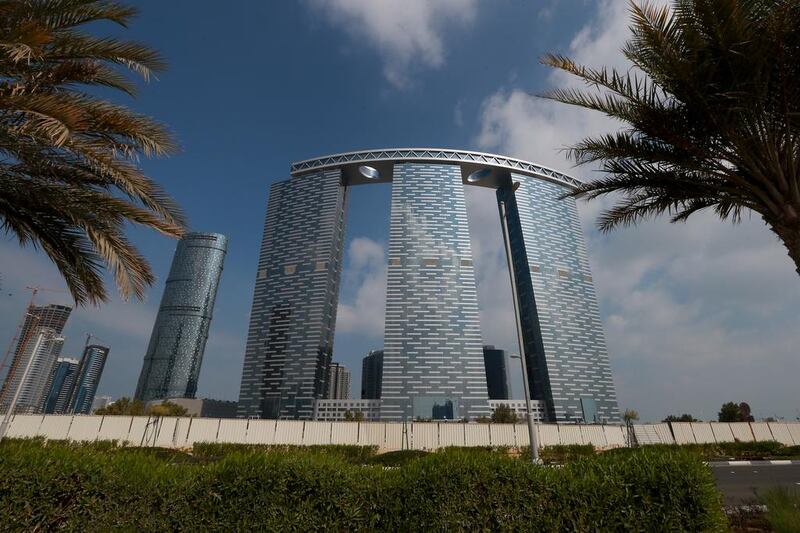DUBAI// Property experts have welcomed a proposed rent index for Abu Dhabi as likely to bring stability to the market.
The index, which is expected to be introduced next month, will use market data to set fair rents for each of 10 to 12 residential zones on Abu Dhabi island.
“I think it is what the market needed,” said Istvan Berger, manager of the property company Light House Abu Dhabi.
“The Government did the right thing last November by removing the 5 per cent rent cap because with the rising cost of maintenance and service fees it was becoming unfeasible for property owners.
“But there needs to be a balance in how high rents can go because people only get a certain salary and if they can’t afford a place in Abu Dhabi then they will move to other emirates.”
Demand was still high for apartments, particularly in newer developments and from large companies, he said.
“The older areas may have more supply than demand at the moment but we expect to see prices increase by between 10 and 15 per cent this year, before stabilising,” said Mr Berger.
William Neill, head of Cluttons Abu Dhabi, said the industry had expected an initiative after the removal of the 5 per cent cap.
“This is good timing for the rental market as it begins to mature,” he said.
“We would like to see more details about how it will work but I think it will provide protection for tenants and landlords as it will be a guide to what the current market rates are.
“We don’t expect rents to increase that much this year as most people who had to downsize have already done so.”
Despite the removal of the cap there was little evidence that landlords had increased rents significantly above the market level, said Mr Neill.
“We did hear stories that people in the Khalifa City A compounds were told that they would be seeing huge increases but from our experience we didn’t see that.”
Areas where there could be higher growth this year were Reem Island, Al Reef and Al Raha. “There is a supply and demand balance at the moment but we are seeing more construction projects being announced,” said Mr Neill.
“Once they are built there could even be a downward push on rents as higher numbers of residential units come on to the market.”
David Dudley, head of Jones Lang LaSalle-Abu Dhabi, said the index would help to keep rents competitive, especially amid concerns about excessive increases after the removal of the cap.
“Prime rents in Abu Dhabi increased by 17 per cent during 2013,” he said. “It was not emirate-wide, but at prime locations.
“There was a concern that the removal of the rent cap would result in hugely increased rents, making the market in Abu Dhabi uncompetitive.
“The index will hopefully maintain rates at a competitive level.”
Al Ittihad, the Arabic-language sister newspaper of The National, reported that property company data showed more than 10 per cent of residential apartments on Abu Dhabi island, about 20,000 homes, were unoccupied.
The index is being compiled by the Department of Municipal Affairs, the Department of Economic Development, the Urban Planning Council and the Abu Dhabi Council for Economic Development.
Residents hope it will counteract rising rents. “The rent is way too high,” said Asif Ali, a Pakistani expatriate who lives in Mussaffah.
“They removed the rent cap, so now we have no security. I’ve been told indirectly by my landlord that the rent will increase, but I have no idea by how much.
“They need a straightforward rule to set the rents.”
Wilfredo Mirana, from the Philippines, used to live in Dubai and considers rents in the capital “better”.
“My rent is increasing though. After Dubai won Expo 2020 even here in Abu Dhabi I will be paying more. My rent has already gone up by Dh200 a month, but it might go higher again.”
“I think there should be a limit on how much it goes up.”
nhanif@thenational.ae
* Additional reporting by Kyle Sinclair






